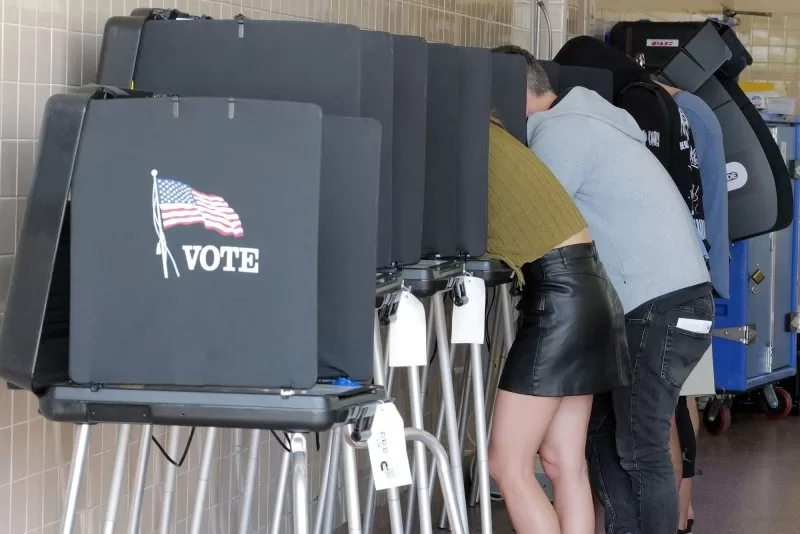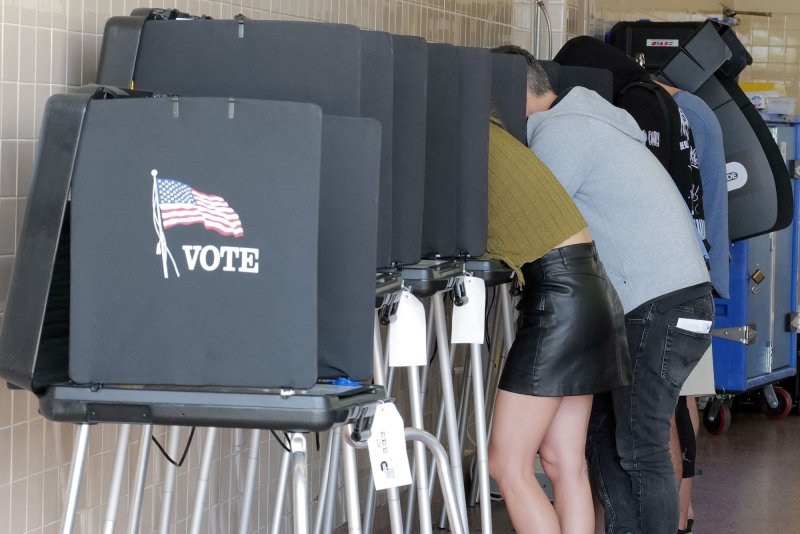The Arizona Supreme Court has ruled that 98,000 residents whose registration status was uncertain due to a decades-old clerical error regarding their proof of citizenship by vote on the full ballot in November. File Photo by Gary I Rothstein/UPI |
License PhotoSept. 21 (UPI) — A decades-old clerical error won’t stop about 98,000 registered voters in Arizona from casting ballots in the Nov. 5 general election, the Arizona Supreme Court has ruled.
Friday’s decision came three days after Maricopa County Recorder Stephen Richer filed an emergency petition seeking the reinstatement of voting rights for 97,928 people who were purged due to an issue with the state’s requirement for voters to confirm their citizenship status.
A 2004 clerical error resulted in the residents being registered to vote despite not providing documentation of their proof of citizenship.
An Arizona law that took effect in 2005 requires documented proof of citizenship status to register to vote.
Driver’s licenses issued after October 1996 were accepted as proof of citizenship, but the state’s voter registration system enabled those who obtained licenses before 1996 and later received replacement licenses without providing documented proof of citizenship to also be registered.
The matter went unnoticed for nearly 20 years before being discovered recently and causing the registered voters to possibly lose their registration status.
The clerical issue meant tens of thousands of Arizona residents were unsure if they could vote in the upcoming general election until the Arizona Supreme Court ruled on the matter.
“We are unwilling on these facts to disenfranchise voters en masse from participating in state contests,” Arizona Supreme Court Chief Justice Ann Scott Timmer wrote in the ruling. “Doing so is not authorized by state law and would violate principles of due process.”
Timmer said there’s no evidence that the affected voters aren’t U.S. citizens.
The affected voters will have to provide proof of citizenship to vote in future elections but not this year, the court ruled.

